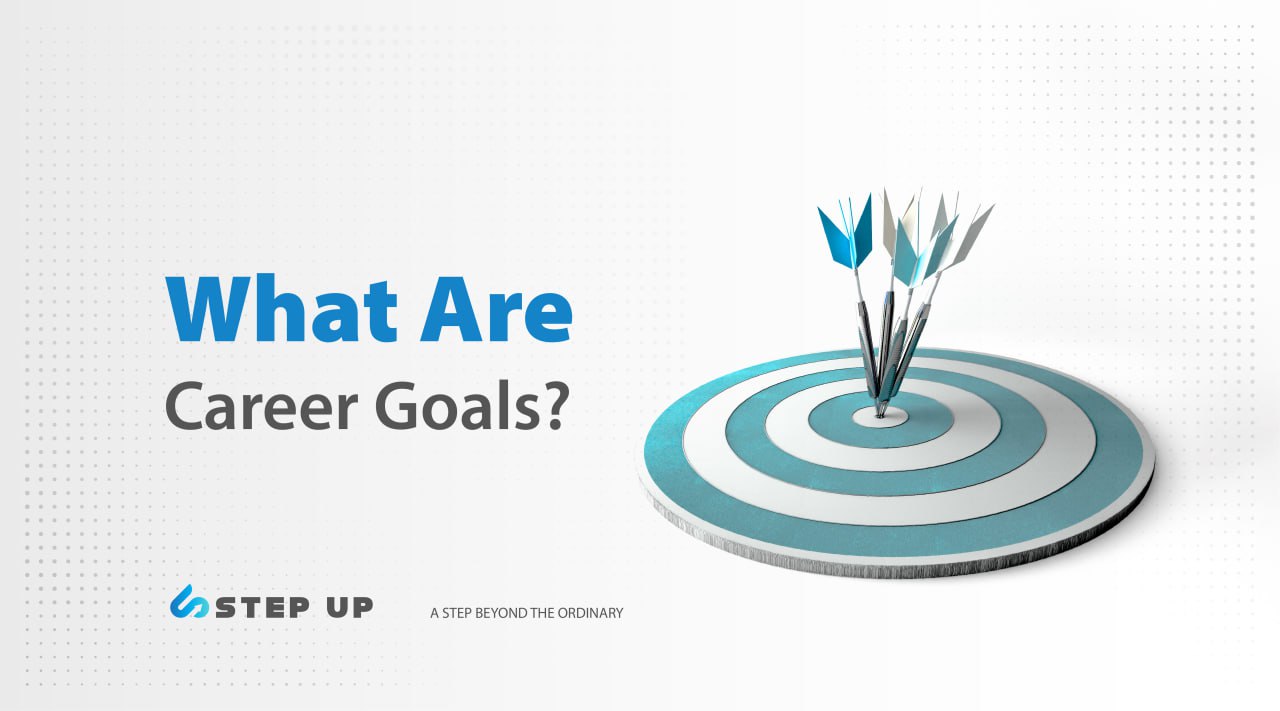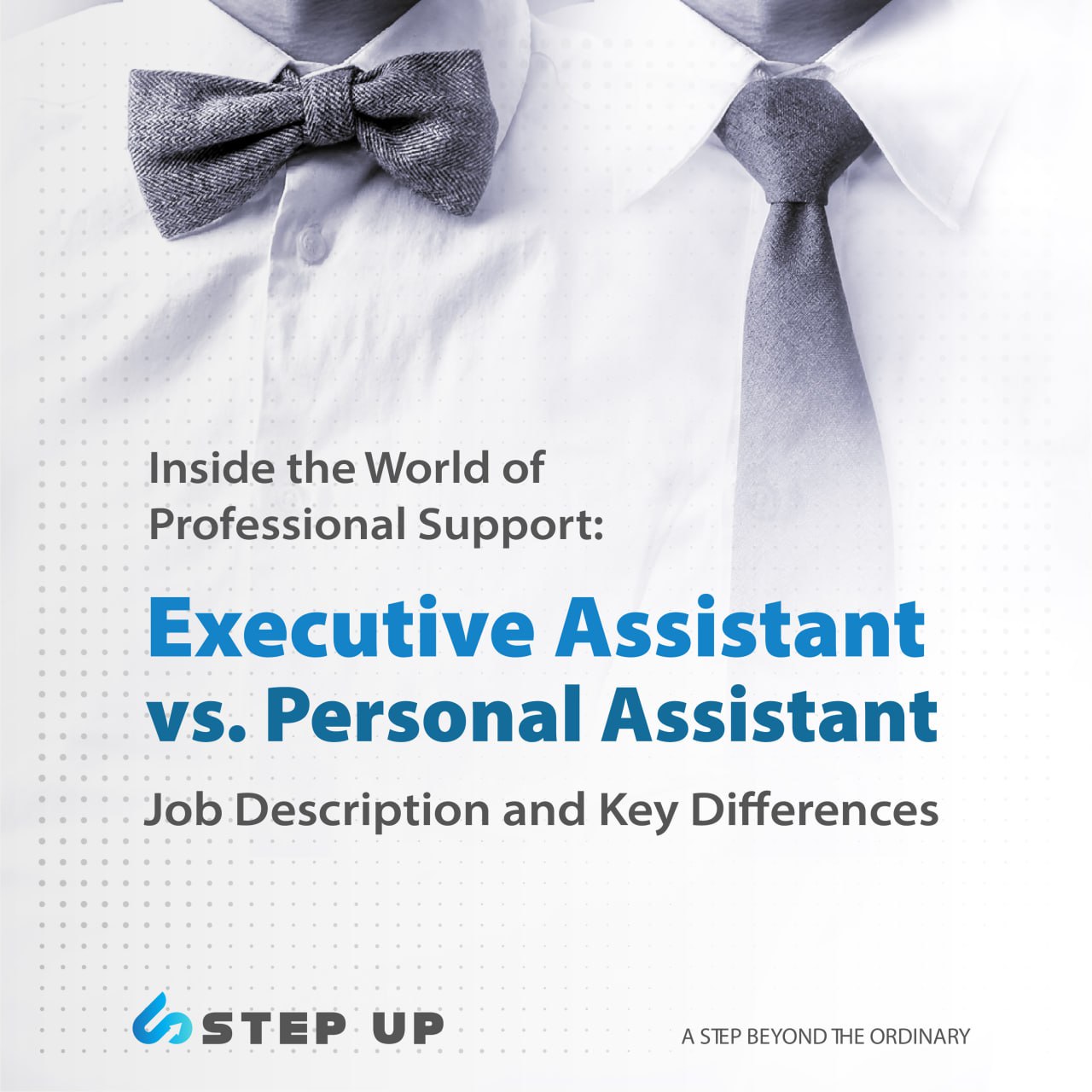-
call: +963 992 185 185
-
Mail: [email protected]
Recent: Syrian Arab Republic, Damascus.
Opening Hours : 09:00 A.M- 06:00 P.M
Perfect Answer for “What Are Your Career Goals?”
Updated on : June 22nd, 2024
When talking about career goals then we are talking about these goals that encourage you to wake up every morning, go to work, and make a difference.
Whether you are working in a high-speed and intensive career, or an easy-going one, you will still need to build your career goals strategy, to actually have something to work forward, and focus your efforts more.
Career professionals say that people with clear career goals achieve more and are twice more productive than people with no goals.
Today, we are going to talk about career goals definition, help you to set your career goals, and talk about their importance, with tips to answer “What are your career goals?” questions from recruiters.
What Are Career Goals?
Career goals could be defined as a specific professional target that you want to achieve through your career path.
These goals could be short-term career goals, like getting a job promotion, or relocating within the same company, or could be long-term career goals like becoming an executive manager, or even establishing your own company.
Moreover, professional goals help you to stay focused, boost your productivity, and motivate you to work more and enjoy results more.
How to Set Your Career Goals?
As we said, and despite your career type, you should have career goals for your own sake, as statistics say that people with goals work better than others.
Here are the best steps that you should follow to create your career goals based on the famous R.E.A.L method:
- Relevant: to highlight why these career goals are worth your efforts, and important for your career path.
- Experimental: set the best development activities that will give you a clear vision about your career, and your professional goals.
- Aspirational: create your strategy for the future, with focus points on the things that you need to improve and update.
- Learning-based: clarify the expected outcomes from achieving each goal, and how you can achieve it.
Following these simple steps will help you to set your career goals, that actually are relevant and efficient for your career, whether, you plan to build a remote job career or an on-site one.
Why Career Goals Are Important?
Whether you are focusing on long-term career goals or short ones, it is important to set clear career goals to have something you work to achieve and push yourself to do more in any open opportunity.
As we can say that career goals have more benefits than you think on your career, enthusiasm, and results.
· Better Focusing:
In fact, setting career goals helps you gain a clear vision of what you want to achieve in your professional life, which may work on some kind of random routine without these professional goals.
As they provide a clear direction and focus, allowing you to make decisions and take actions that align with your objectives.
· High Motivation:
Goals provide motivation and drive to work towards something meaningful that achieves your clear vision of what you want to achieve.
Furthermore, you are more likely to be motivated and committed to putting in the necessary effort and taking the necessary steps to reach your goals, just because goals serve as a source of inspiration during challenging times and help you stay focused on long-term success.
· Measurement of Progress:
When you have clear goals then you would have a clear benchmark to measure your progress by, whether you are planning to change your career or develop your leadership personality.
With measures that allow you to track your accomplishments and assess how far you have come in your career journey.
However, you must regularly review your goals and evaluate your progress to identify areas that need improvement and make adjustments as needed.
· Personal and Professional Development:
Keep in your mind, that setting career goals encourages personal and professional development, with an inspiring mindset to gain new skills, knowledge, and experiences to help you accomplish your objectives.
Moreover, pursuing your goals must involve stepping out of your comfort zone and embracing any growth opportunities to empower your personal fulfillment and professional advancement.
· Decision-Making Tool:
Career goals act as a decision-making tool, guiding you in making choices that align with your long-term ambitions.
Simply because when you face different career options or opportunities, you will be able to evaluate them against your goals, to determine which ones are most likely to contribute to your desired outcomes.
· Sense of Achievement:
Accomplishing career goals brings a sense of happiness and achievement, as each milestone reached and goal attained boosts your confidence, provides a sense of purpose, and reinforces your belief in your capabilities.
This positive support and strengthening can motivate you even more to set and hunt more determined goals.
Remember that career goals can evolve over time as you gain new experiences, change interests, or discover new passions; thus, it is essential to regularly assess and refine your goals to ensure they remain aligned with your evolving aspirations.
The Different Between Career Goals and Personal Goals:
Keep in your mind that career goals and personal goals have big interactions with each other; however, we must say that there are some key differences between the two:
· Focus:
Career goals primarily revolve around your professional life and are centered on achievements, growth, and success in your chosen field.
On the other hand, personal goals cover various aspects of your life, including relationships, health, hobbies, personal development, and overall well-being.
· Measurement of Success:
Success in career goals is often measured by professional achievements, such as promotions, salary negotiation, or industry recognition.
Meanwhile, personal goals can be measured by personal satisfaction, happiness, fulfillment, and the positive impact on various aspects of your life.
· Interdependence:
In fact, career goals can be influenced by personal goals, and vice versa, for example, your personal goal of achieving a better work-life balance may influence your career goal of seeking a flexible job or starting your own business.
Likewise, career success can provide resources and opportunities to pursue personal goals, such as financial stability for travel or pursuing a hobby.
Thus, and while it is important to have a balance between career and personal goals, it is more crucial to ensure that they are aligned to support each other, so you can strive for both professional success and personal fulfillment.
Why Do Recruiters Ask About Your Career Goals?
As all human resources specialists are looking to recruit superheroes for their company; thus, they will not only look for potential candidates’ experience and certificates but also will consider the candidate from all perspectives.
Thus, most likely during the job interview, you would be asked about your future career goals, so the recruiter will know a little more about you.
Moreover, find out if your career goals and objectives align with the company’s mission, vision, goal, and objective at the current time and in the future.
Furthermore, these question types give the interviewer more insights about your goals and how they are going to benefit the company, and how the company can empower you to reach your career goals faster.
Keep in mind, that when your goals align with the company goals your odds to get the job would be higher; thus, a little search about the company goals will help you to boost your chances.
5 Tips to Answer the Career Goals Question Perfectly:
Whether you have a job interview soon, or just started your job hunting process, you must prepare your answers for the famous interview questions to be ready, prepared, and relaxed during your interview:
1. Align Your Goals:
When you talk about your career goals you should not just list them like you are reading from a book in front of you, but talk about them, and align them with what you are doing.
Moreover, align your career goals with the company you are applying for, as this will highlight you as someone who knows what he/she is doing; moreover, show your interest in the company and help it to achieve its desired objectives.
2. Provide Explanation:
Ok, as we said you should not only list your goals; thus, you should say why you chose these goals, and why you see them important for your career path.
This will present you as someone who has a vision and not just gives random career goals to provide a traditional answer to an expected question.
3. Keep Your Answers Short and Focused:
So, the sure thing is that the interviewer is not interviewing just you all day; thus, you must keep your answers short and interested to keep him/her focused with you.
Moreover, invest your interview time in the best way and get to know all the interesting information.
4. Talk About Your Plan to Achieve These Goals:
As important as it is to have career goals, it is also as important to have a plan to achieve them; thus, when you talk about your professional goals, and while you are aligning them with you and with the company.
You should also talk about your plan to achieve them, what have you done so far, and what you are going to do in the future.
5. Do Not Focus on Money:
Although we are all in some way or another working for money; however, when talking about your career goals you should not focus on money to avoid looking at you as a money person.
Thus, if you have money as a career goal, you can list it as financial stability or something like that, which presents you as someone looking for better life quality, not for money.
3 Career Goals Examples:
To make everything clearer, we are going to share with you real-life examples of professional career goals:
1. Improve Performance:
Goal: Increase sales performance by 20% within the next year by working towards improving performance through analyzing sales strategies, enhancing product knowledge, and refining communication skills.
Benefits of Achieving this Goal:
- Recognition and advancement.
- Financial rewards.
- Skill development.
2. Build Your Network:
Goal: Expand professional network by attending industry conferences and joining relevant associations, aiming to establish connections with at least five influential professionals within the next six months.
Benefits of Achieving this Goal:
- Opportunities for new collaboration.
- Access to knowledge and insights.
- Boost career opportunities.
3. Achieve Better Work-Life Balance:
Goal: Implement strategies to achieve a healthy work-life balance, such as setting clear boundaries, delegating tasks, and prioritizing personal time, aiming to have dedicated time for personal pursuits and quality time with loved ones.
Benefits of Achieving this Goal:
- Reduced stress and improved well-being.
- Enhanced productivity.
- Happier life.
One last word,
After all that was listed in our blog, you must know that your career goals must be tailored to your specific career and circumstances to set goals that are challenging yet achievable.
Moreover, do not forget to regularly review and adjust them as needed to stay on track, and contact us to help you find the best position for your professional career goals.




